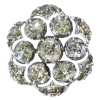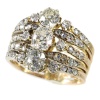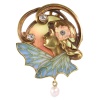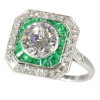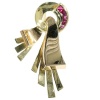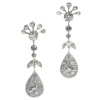Nous offrons des facilités de paiement pour le bijou de vos rêves. Demandez nous les détails. Expédition assuré gratuite !
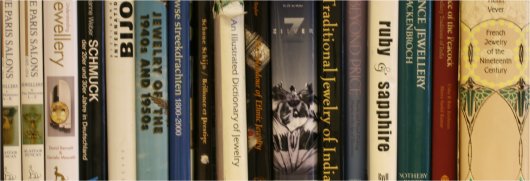
Antique jewelry glossary
Welcome to our extensive antique jewelry glossary with around 1,500 jewelry related entries.If you feel you are missing an explanation, feel free to let us know and we will add it.
A - B - C - D - E - F - G - H - I - J - K - L - M - N - O - P - Q - R - S - T - U - V - W - X - Y - Z all
Poseidon
In Greek mythology, Poseidon (Latin: Neptunus) was the god of the sea, as well as of horses, and, as "Earth-Shaker," of earthquakes. The name of the sea-god Nethuns in Etruscan was adopted in Latin for Neptune in Roman mythology; both were sea gods analogous to Poseidon. Linear B tablets show that Poseidon was venerated at Pylos and Thebes in pre-Olympian Bronze Age Greece, but he was integrated into the Olympian gods as the brother of Zeus and Hades.
Poseidon has many children. There is a Homeric hymn to Poseidon, who was the protector of many Hellenic cities, though he lost the contest for Athens to Athena. Poseidon was given a trident during the war of the Titans and the gods. He fought alongside his siblings. The war lasted 10 years. After the war the gods divided the earth among themselves by drawing lots. Zeus took the sky, Poseidon took the sea, and Hades took the underworld.
Although Poseidon, unlike Hades, had a throne on Mt. Olympus, he liked to stay underwater in his palace with his queen Amphitrite, the daughter of the Old Man of the Sea.
See also: Olympian gods
From: Wikipedia



